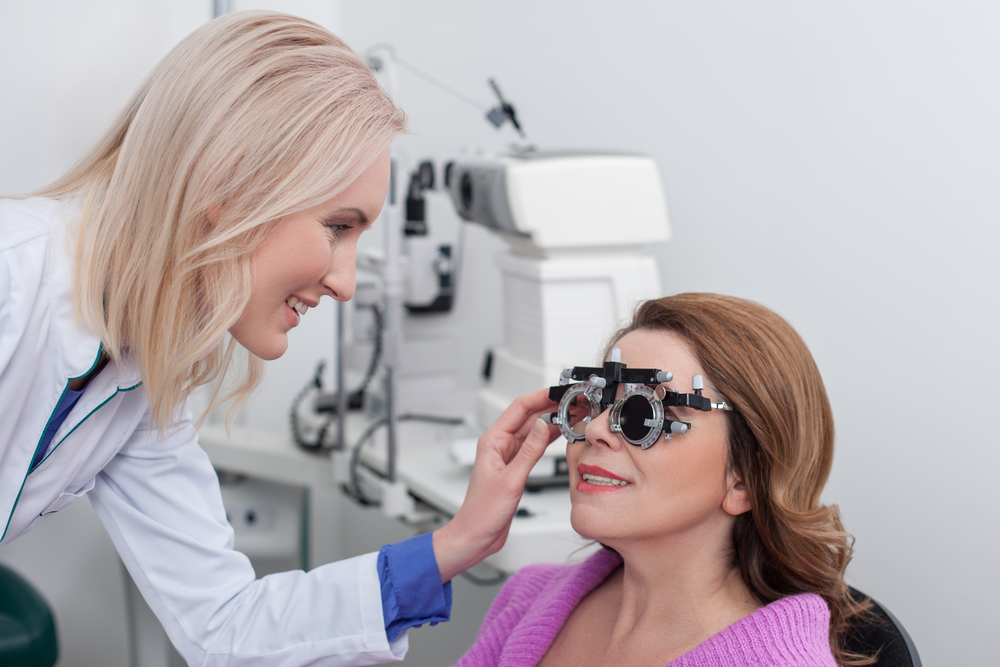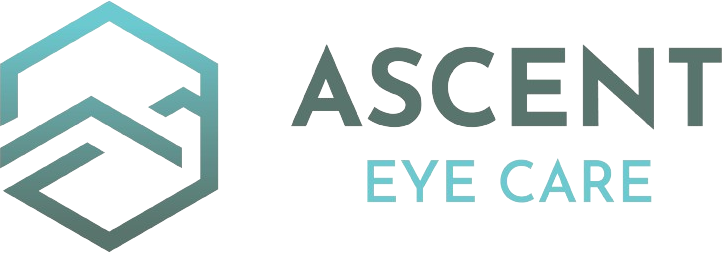
Turning 40 is a significant milestone, and it often brings subtle changes to our vision. As we age, our eyes become more susceptible to conditions like presbyopia, cataracts, glaucoma, and macular degeneration. These changes are natural, but they don’t have to compromise your quality of life. With routine eye care and preventive measures, you can maintain clear vision and avoid serious complications. At Ascent Eye Care, we believe that proactive eye care is essential for preserving your vision and overall health.
How Vision Changes After 40
Aging affects the structure and function of the eyes in several ways:
Presbyopia: Around the age of 40, many people notice difficulty focusing on close objects. This condition, caused by the stiffening of the eye’s lens, is a natural part of aging. Reading glasses or multifocal lenses can often help.
Cataracts: Cataracts develop gradually and are characterized by clouding of the lens, leading to blurry or dim vision. While common, cataracts are treatable with a routine surgical procedure.
Glaucoma: Often called the “silent thief of sight,” glaucoma can develop without noticeable symptoms until significant damage has occurred. Regular eye pressure checks are vital for early detection.
Macular Degeneration: The leading cause of vision loss among older adults, macular degeneration affects central vision and can make activities like reading and driving more difficult.
Even if your vision feels fine, these changes can progress unnoticed. Routine eye care is the best way to catch and manage them early.
Why Routine Eye Exams Are Essential
Annual eye exams go beyond updating your glasses or contact lens prescription—they are a critical tool for preventing and managing eye conditions. During a comprehensive eye exam, your eye doctor can:
Assess your visual acuity and update your prescription if needed.
Detect early signs of conditions like glaucoma, diabetic retinopathy, or macular degeneration.
Monitor changes in the health of your eyes over time.
Provide guidance on lifestyle changes to support long-term vision health.
Many serious eye conditions don’t present symptoms until they’re advanced, so annual exams are your first line of defense against vision loss.
Signs You Should See an Eye Doctor Immediately
While routine exams are crucial, some symptoms should never be ignored. Contact your eye doctor immediately if you experience:
Sudden or severe vision changes
Flashes of light or floaters in your vision
Eye pain or discomfort
Loss of peripheral vision
Prompt care can make a significant difference in the outcome of many eye conditions.
The Ascent Eye Care Advantage
At Ascent Eye Care, we offer comprehensive eye care for patients of all ages, including those over 40. Our experienced team uses state-of-the-art diagnostic tools to detect and manage eye conditions early. Whether you need help managing presbyopia, cataracts, or simply want to maintain your current vision, we provide personalized care and solutions to meet your needs. We also offer tailored advice to support your lifestyle and eye health goals, including guidance on proper nutrition, UV protection, and digital eye strain reduction.
Protect Your Vision for the Future
Taking care of your eyes as you age is an investment in your quality of life. Routine exams, a healthy lifestyle, and expert guidance from Ascent Eye Care can help you stay ahead of age-related vision problems.
Contact Ascent Eye Care to schedule a comprehensive eye exam, and learn more about how we can help you prevent age-related vision problems. Visit out office in Salida, Colorado, or call (719) 539-3581 to book an appointment today.







